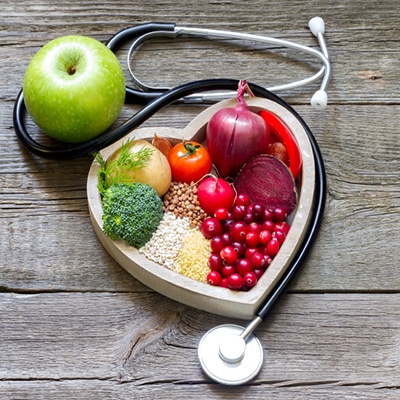 Department of Health
Department of Health
The UK Chief Medical Officers’ updated guidelines for alcohol consumption have been published. You can find them here. The guidelines warn that drinking any level of alcohol increases the risk of a range of cancers, which is supported by the Committee on Carcinogenicity’s new review on alcohol and cancer risk.
Recommendations within the latest guidelines include:
- The recommendation for men has been reduced from no more than 21 units of alcohol per week to no more than 14 units, the same level as for women.
- A new recommendation not to ‘save up’ the 14 units for 1 or 2 days, but to spread them over 3 or more days. People who have 1 or 2 heavy drinking sessions each week increase the risk of death from long term illnesses, accidents and injuries.
- An updated recommendation for pregnant women to clarify that no level of alcohol is safe to drink in pregnancy, removing the previous advice for pregnant women to limit themselves to no more than 1-2 units of alcohol once or twice per week.
- For the first time, advice on single episodes of drinking – to keep the short term health risks low limit the total amount of alcohol drunk on any one occasion, drink more slowly, with food and alternate with water.
Change4Life
A new campaign has been launched encouraging parents to get “Sugar Smart” and monitor their children’s sugar intake. The Change4Life campaign follows revelations that on average 4-to-10 year olds consume large amounts of sugars.
A new Sugar Smart app has been launched to help parents see how much sugar there is in everyday food and drink. The free app works by scanning the barcode of products and revealing the amount of total sugar it contains in cubes and grams. A link to the app is on the Sugar Smart campaign’s homepage
Bapen
BAPEN has launched a new self-screening tool for patients and carers to help individuals identify their own risk of malnutrition or the risk of malnutrition in someone they care for. It is based on MUST (the Malnutrition Universal Screening Tool), the most widely used screening tool in the UK. The new self-screening tool is free to use and allows people to screen themselves from their own homes. It involves a calculator which can work out malnutrition risk based on height, weight and recent weight lost. Should someone be found to be at high risk of malnutrition, they will be encouraged to seek appropriate advice from their GP or other healthcare professional.
The new self-screening tool from Bapen is available here
ESPEN
New ESPEN guidelines on nutrition in dementia have been published in the journal Clinical Nutrition. Download them here.
The guidelines were developed by an international multidisciplinary working group in accordance with officially accepted standards. 26 recommendations for nutritional care of older persons with dementia are given. In every person with dementia, screening for malnutrition and close monitoring of body weight are recommended. In all stages of the disease, oral nutrition may be supported by provision of adequate, attractive food in a pleasant environment, by adequate nursing support, and elimination of potential causes of malnutrition. Supplementation of single nutrients is not recommended unless there is a sign of deficiency. Oral nutritional supplements are recommended to improve nutritional status but not to correct cognitive impairment or prevent cognitive decline. Artificial nutrition is suggested in patients with mild or moderate dementia for a limited period of time to overcome a crisis situation with markedly insufficient oral intake, if low nutritional intake is predominantly caused by a potentially reversible condition, but not in patients with severe dementia or in the terminal phase of life.
World Health Organisation
The World Health Organisation (WHO) Commission on Ending Childhood Obesity (ECHO) presented its final report to the WHO Director-General. The report, which you can download here, proposes recommendations for governments for reversing the rising trend of obesity.
Recommendations are given in six main areas:
- Promote intake of healthy foods – reduce the intake of unhealthy foods and sugar-sweetened beverages (e.g. through effective taxation on sugar-sweetened beverages, restricting marketing of unhealthy foods).
- Promote physical activity – implement comprehensive programmes that promote physical activity and reduce sedentary behaviours.
- Preconception and pregnancy care – integrate and strengthen guidance for the prevention of non-communicable diseases with current guidance on preconception and antenatal care (preventing low/high birth weight, prematurity and other complications in pregnancy to reduce risk of childhood obesity).
- Early childhood diet and physical activity – provide guidance on/support for healthy diet, sleep and physical activity in early childhood, promote healthy habits and ensure children grow appropriately (e.g. by promoting breastfeeding; limiting consumption of high fat/sugar/salt foods; ensuring availability of healthy foods and physical activity in early childcare settings).
- Health, nutrition and physical activity for school-age children – promote healthy school environments, health and nutrition literacy and physical activity among school-age children and adolescents (e.g. by establishing standards for school meals; eliminating the sale of unhealthy foods and drinks; including health and nutrition and quality physical education in the core curriculum).
- Weight management – provide family-based, multi-component, lifestyle weight management services for children and young people who are obese.
The US Department of Health and Human Services and the US Department of Agriculture
The 8th edition of the US nutrition recommendations, the 2015-2020 Dietary Guidelines for Americans have been published. View the guidelines here.
The recommendations fit into five main areas:
- Follow a healthy eating pattern across the lifespan
- Focus on variety, nutrient-dense foods, and amount
- Limit calories from added sugars and saturated fats, and reduce sodium intake
- Shift to healthier food and beverage choices
- Support healthy eating patterns for all
The latest report also includes updated guidance on added sugars, sodium and cholesterol, and new information on caffeine.




